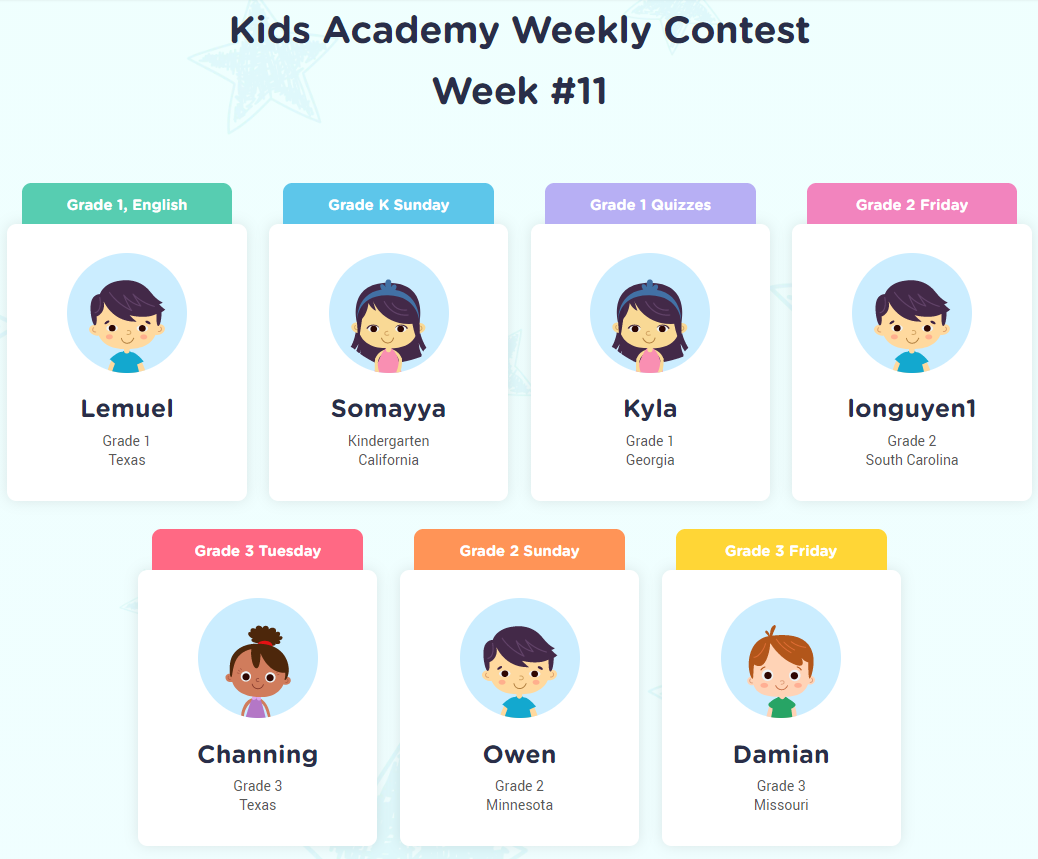Pattern recognition Math Worksheets for Ages 3-7
22 filtered results
-
From - To
Introduce your child to the exciting world of math with our Pattern Recognition Math Worksheets for Ages 3-7. At Kids Academy, our printable worksheets are designed to enhance your child's cognitive skills through engaging activities. These worksheets help young learners identify, analyze, and replicate patterns, paving the way for critical thinking and problem-solving skills. With colorful illustrations and fun exercises, our resources make learning both effective and enjoyable. Ideal for preschool to early elementary students, our pattern recognition worksheets provide a solid foundation in math, setting your child up for lifelong academic success. Download now to start the learning journey!
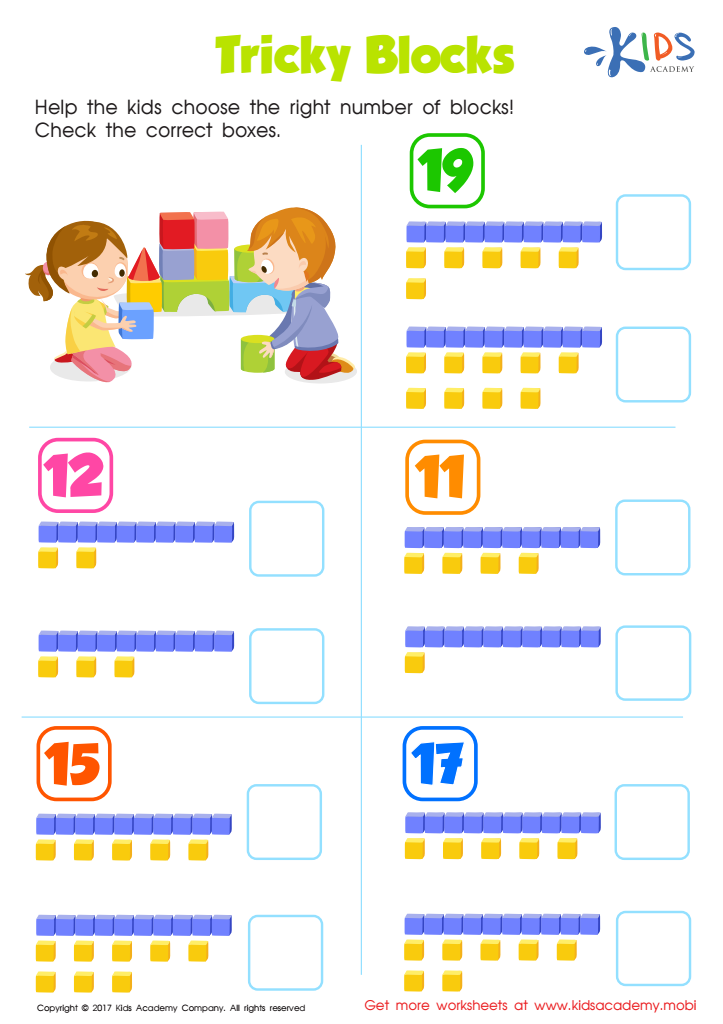

Tricky Blocks Worksheet
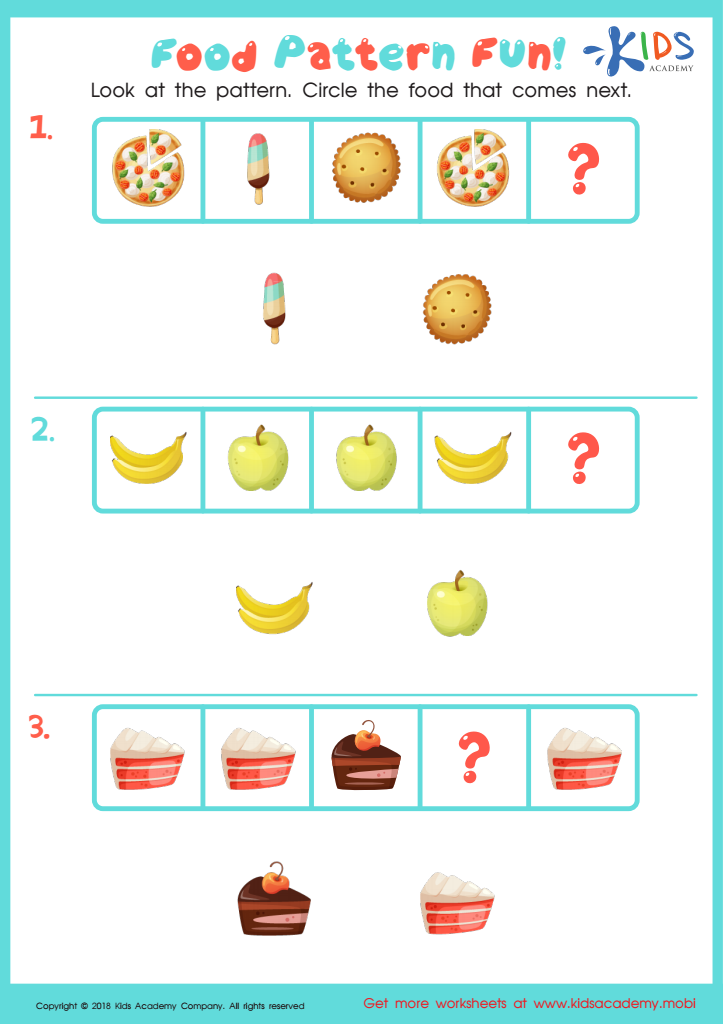

Food Pattern Fun Worksheet
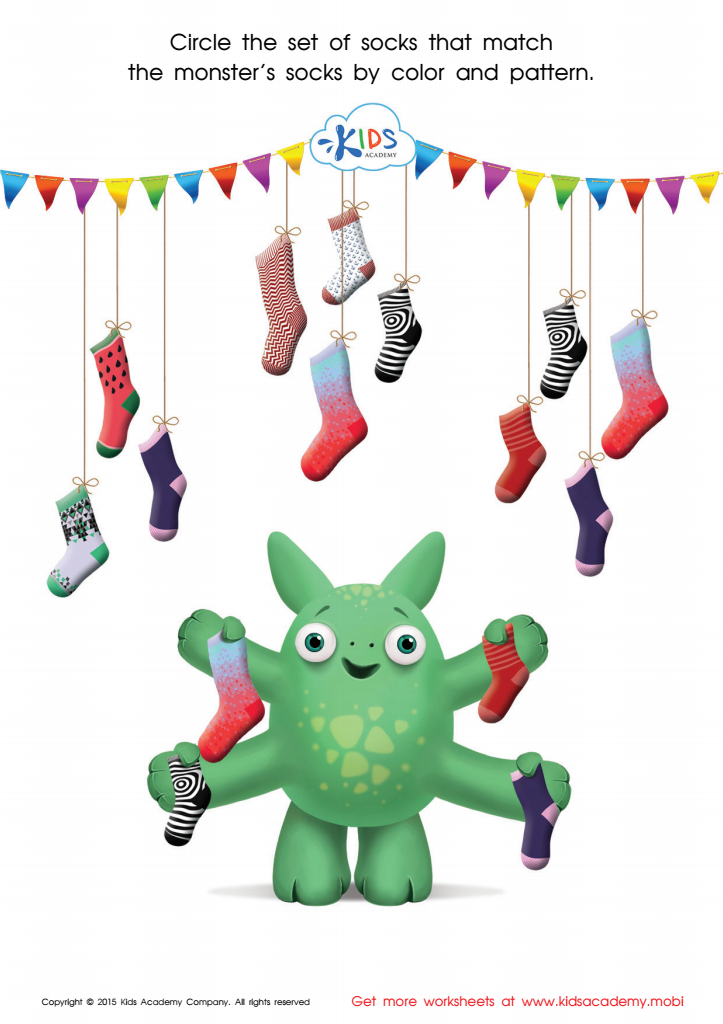

Sort the Monster's Socks Worksheet
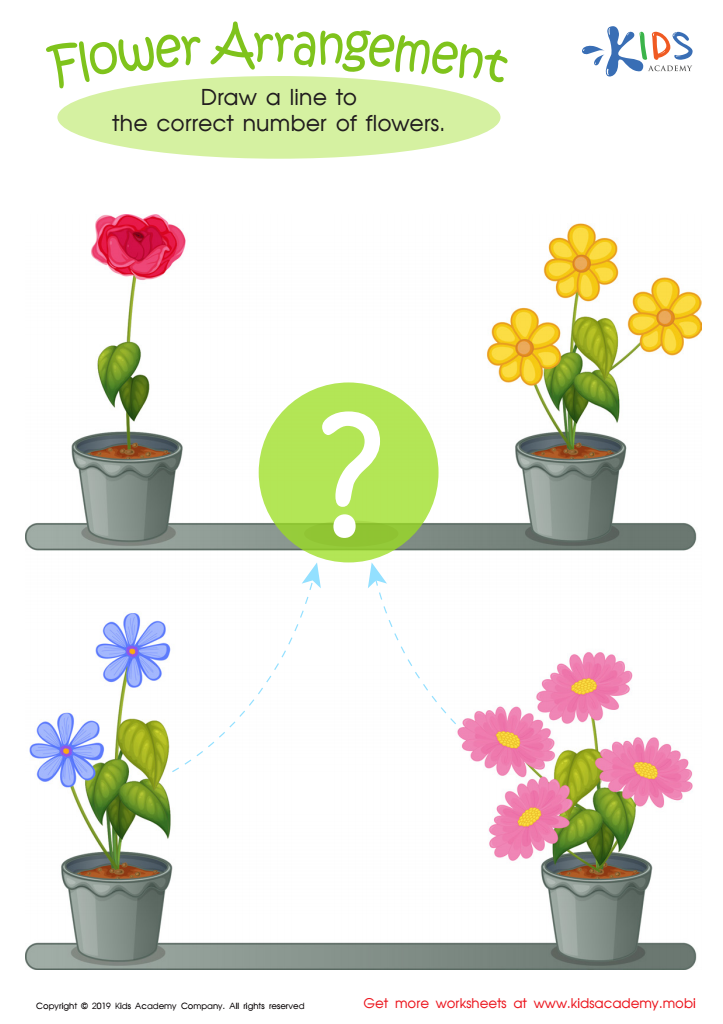

Flower Arrangement Worksheet
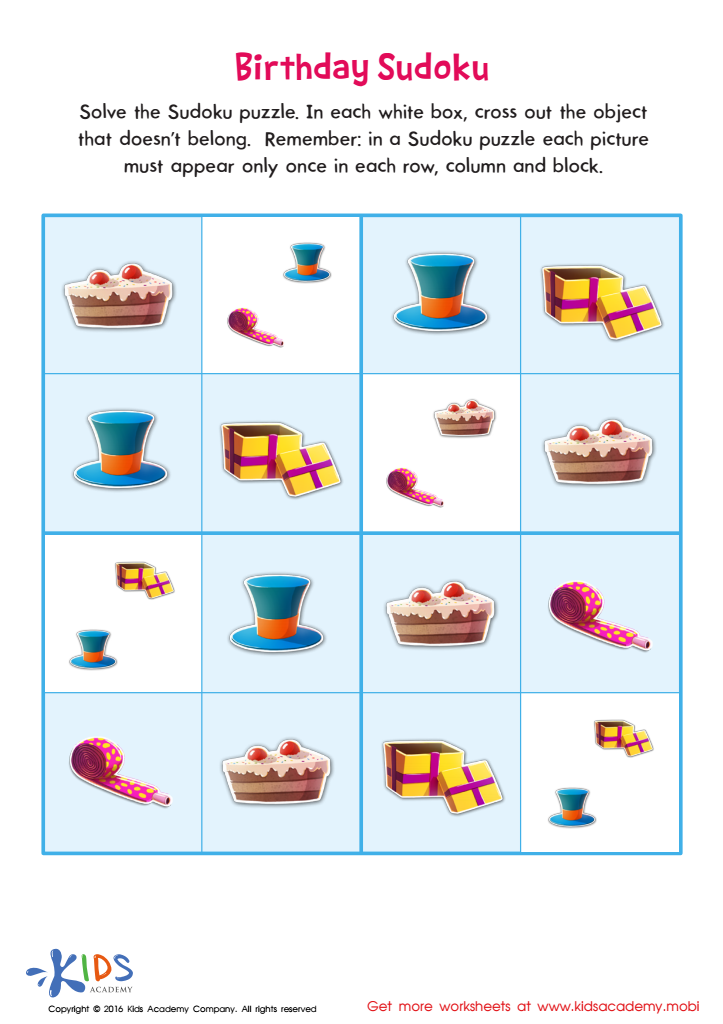

Birthday Sudoku Sorting Worksheet
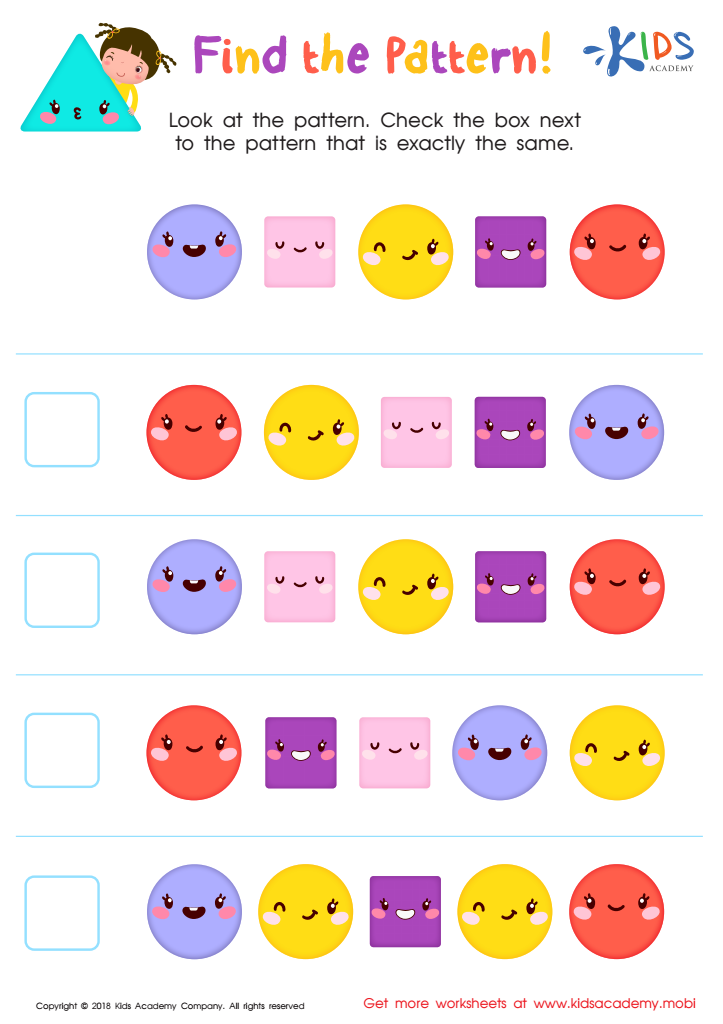

Find the Pattern Worksheet
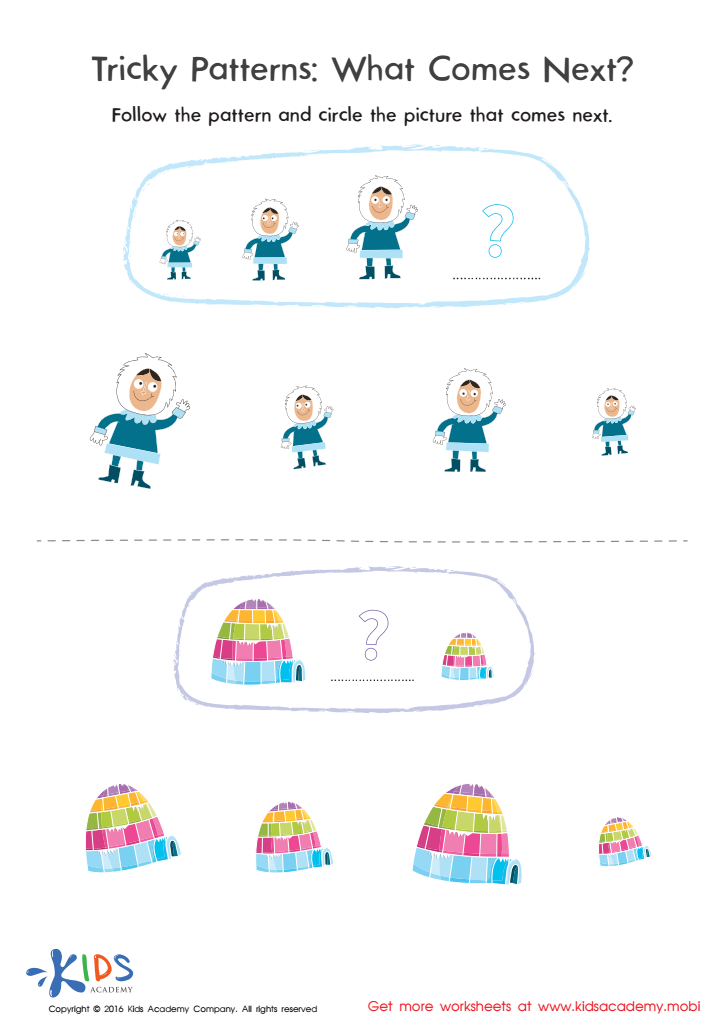

Tricky Patterns Size Worksheet


Make the Same Pattern Worksheet
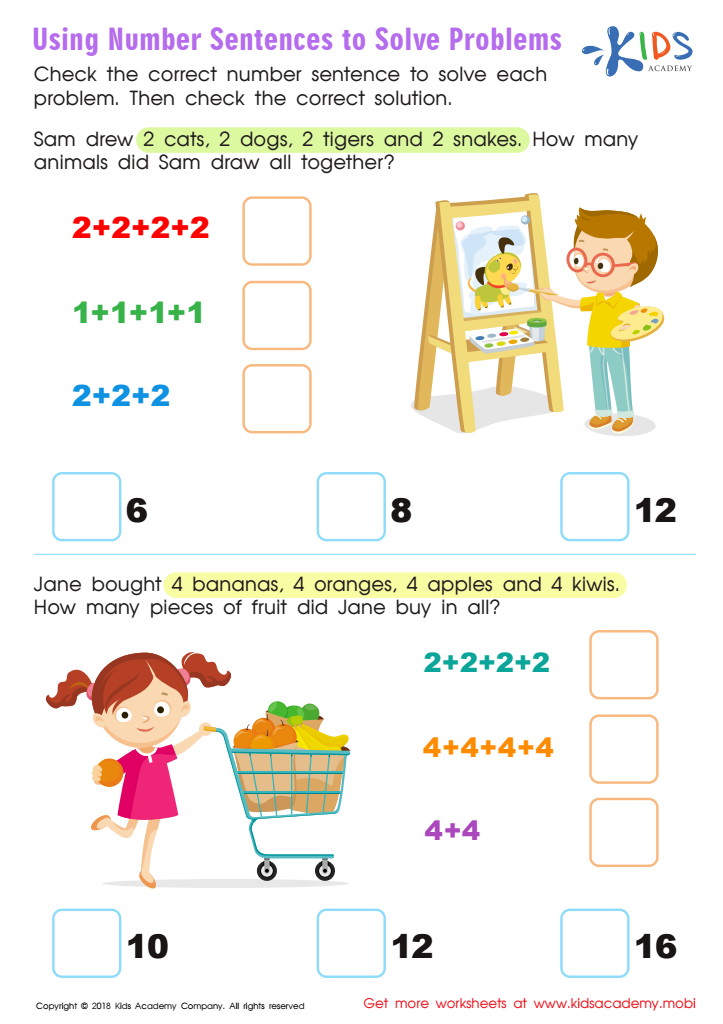

Using Number Sentences to Solve Problems Worksheet
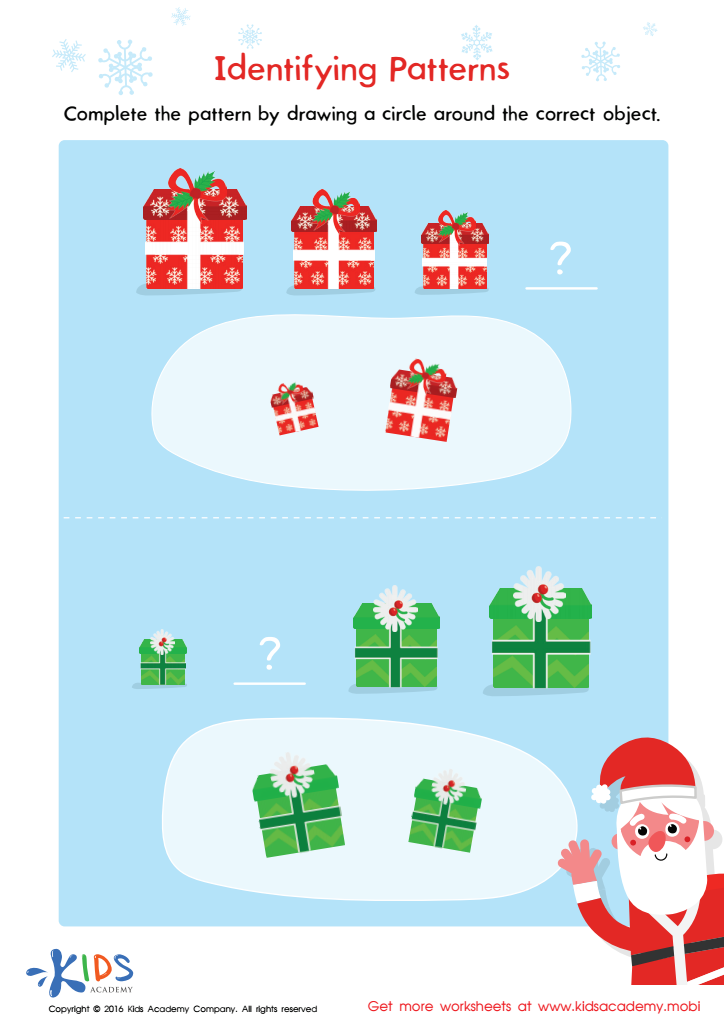

Identifying Patterns Worksheet
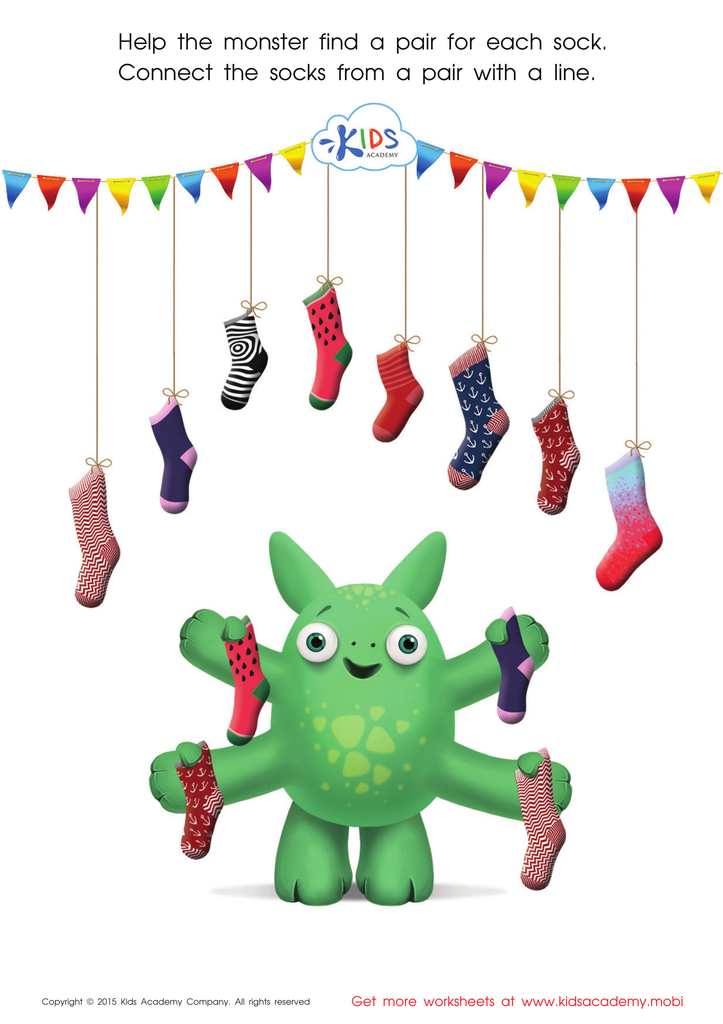

Math Matching Game: Monsterв's Socks Worksheet
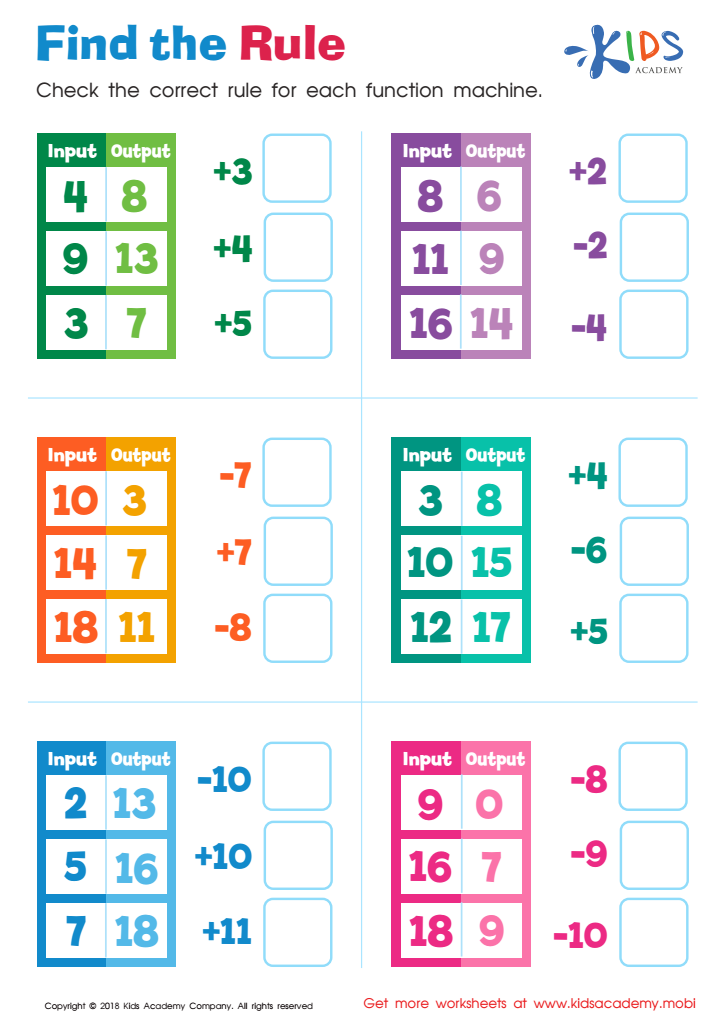

Find the Rule Worksheet


Logic Game Sorting Worksheet
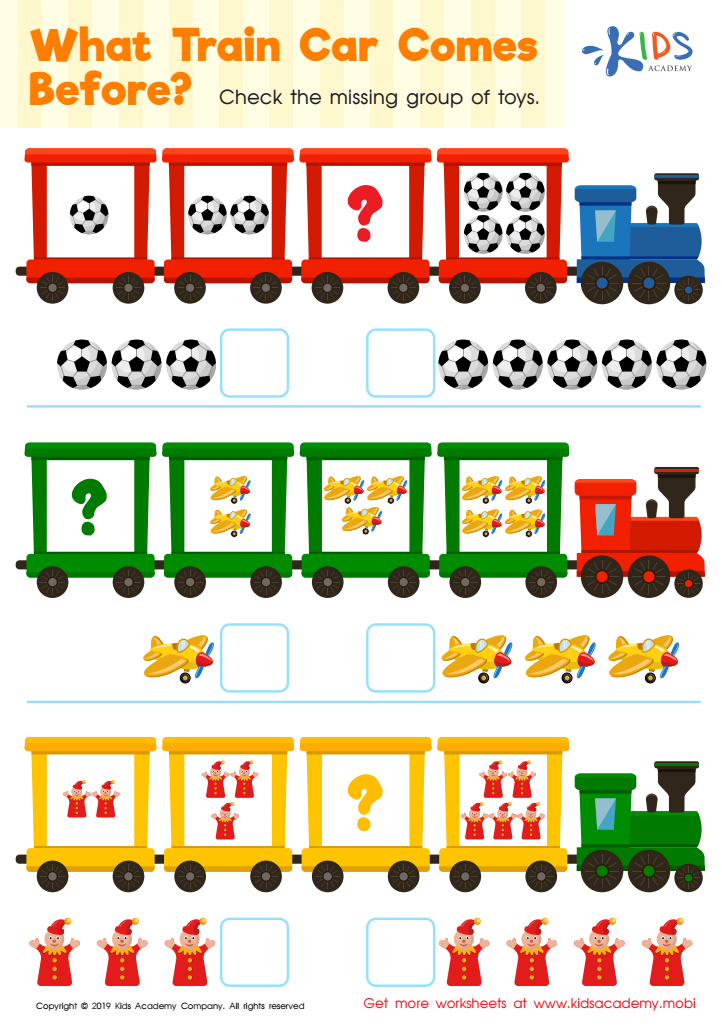

What Train Car Comes Before? Worksheet
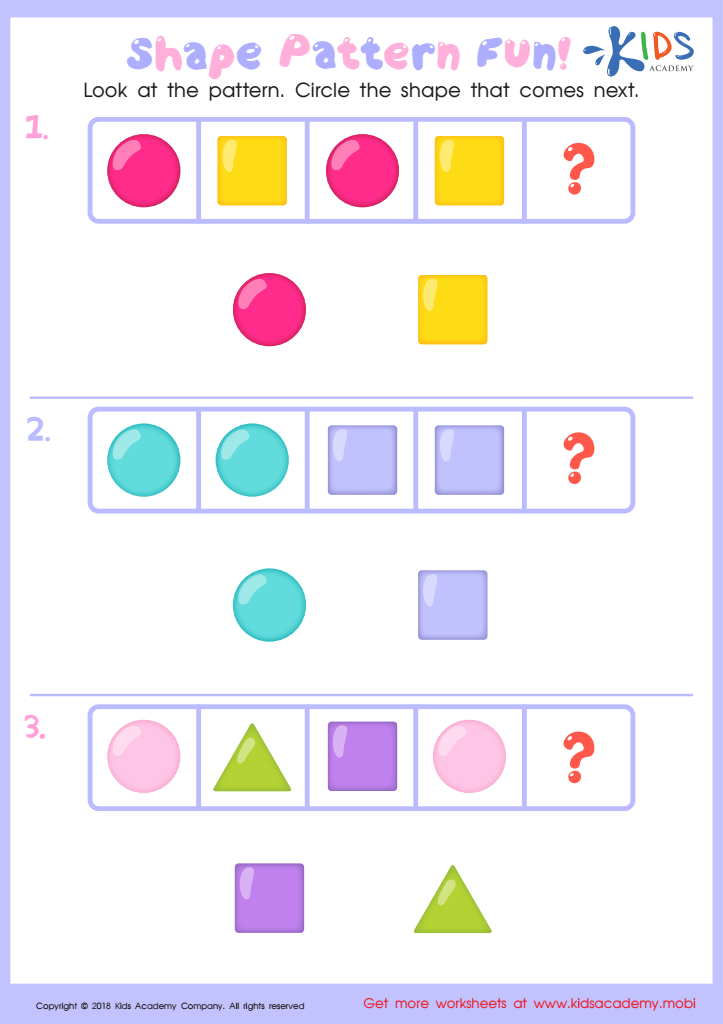

Shape Pattern Fun Worksheet
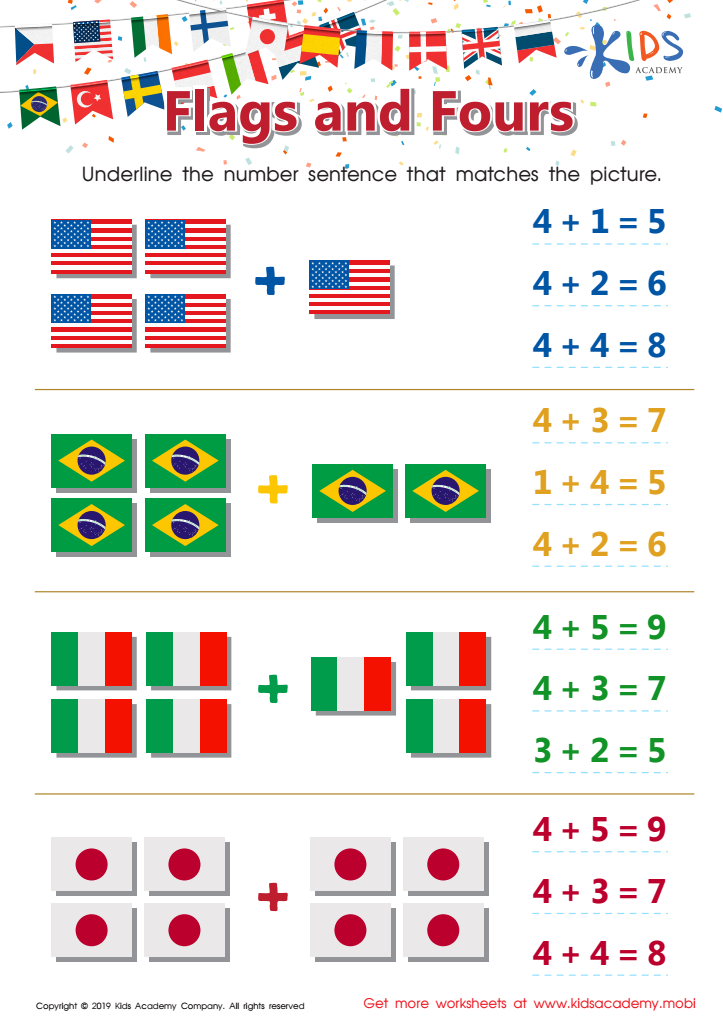

Flags and Fours Worksheet
Pattern recognition in math is crucial for children aged 3-7 because it forms the foundation for more advanced mathematical thinking and problem-solving. At this early stage, recognizing patterns helps enhance cognitive development by engaging young minds in categorizing and making sense of the world. When children identify and predict sequences in shapes, colors, or numbers, they develop critical thinking and analytical skills.
For parents and teachers, fostering an environment rich in pattern recognition can substantially aid early learning. Patterns are ubiquitous in nature, language, and art, making them relevant to various learning contexts. When children grasp basic patterns, they pave the way for understanding more complex mathematical concepts such as addition, subtraction, multiplication, and division later on.
Early mastery in recognizing patterns also contributes to a child's confidence and enthusiasm for learning mathematics. It helps develop their attention to detail and the ability to organize information systematically. Encouraging pattern recognition can involve simple activities like clapping hands in sequences, arranging colored blocks, or identifying patterns in everyday surroundings.
By supporting this skill at a young age, parents and teachers equip children with essential tools for academic success and lifelong learning. Consequently, prioritizing pattern recognition activities is an effective and engaging way to foster early mathematical abilities.
 Assign to My Students
Assign to My Students


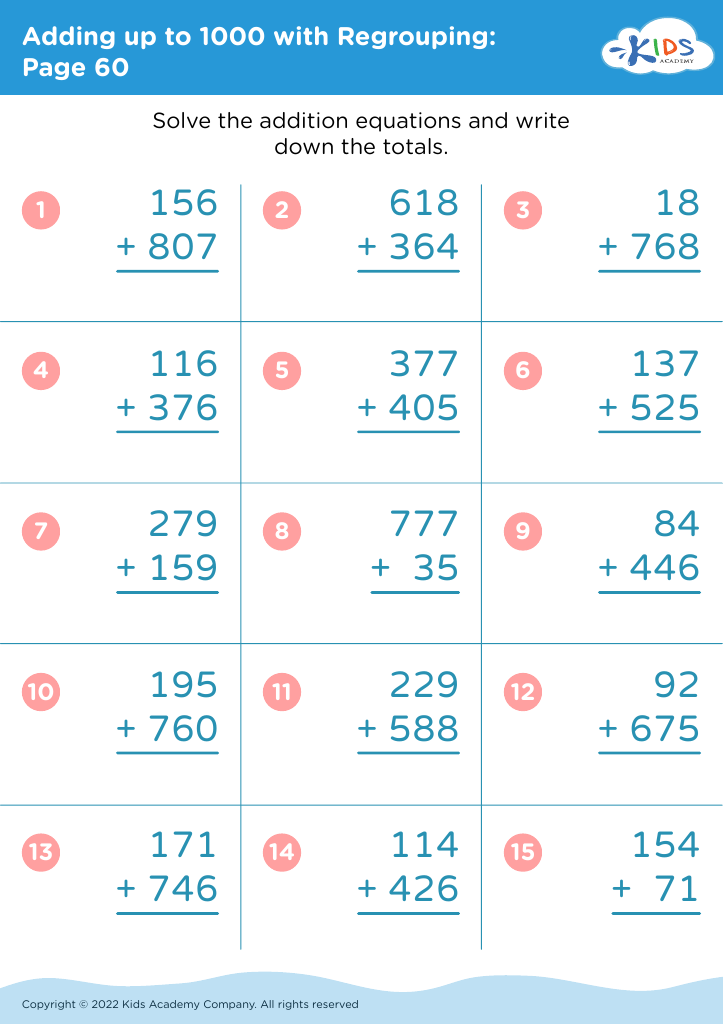


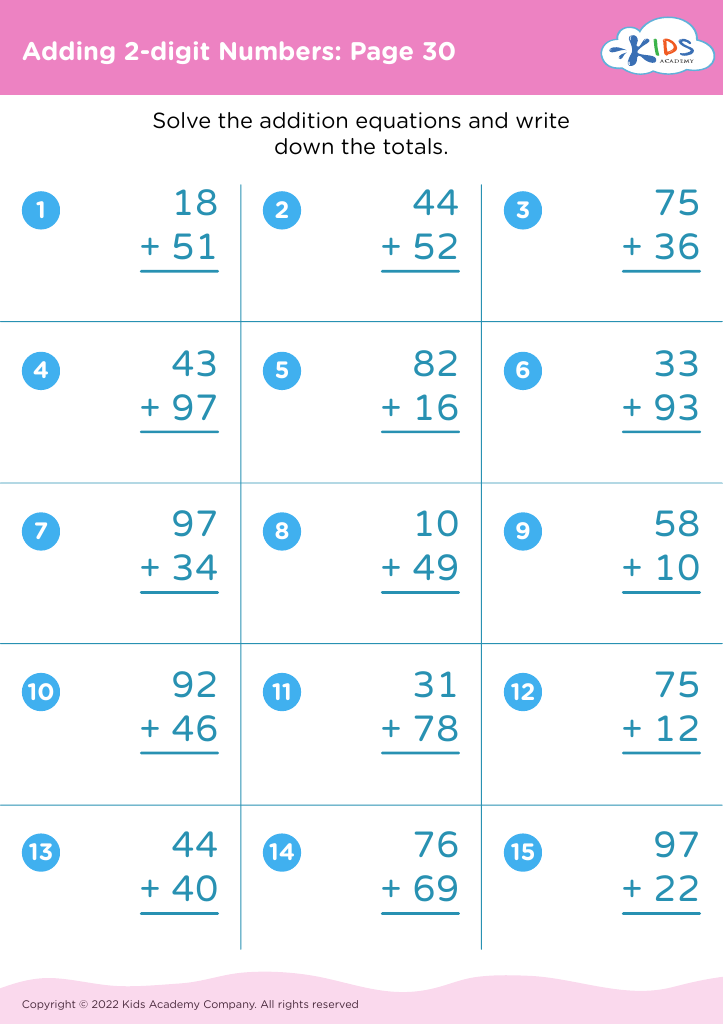
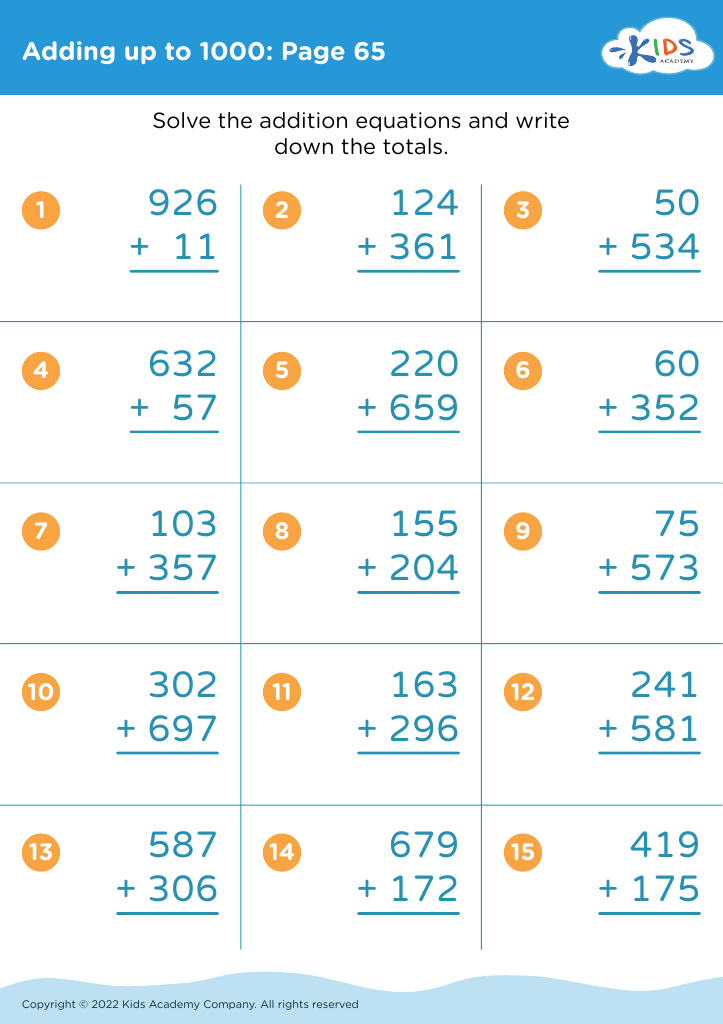
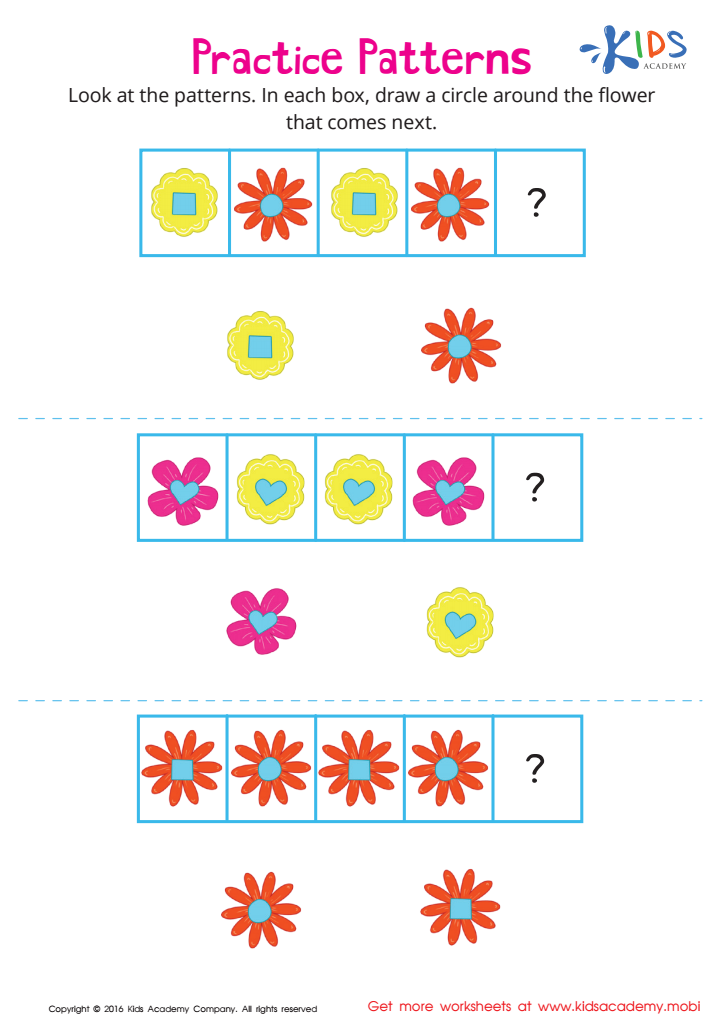







.jpg)
